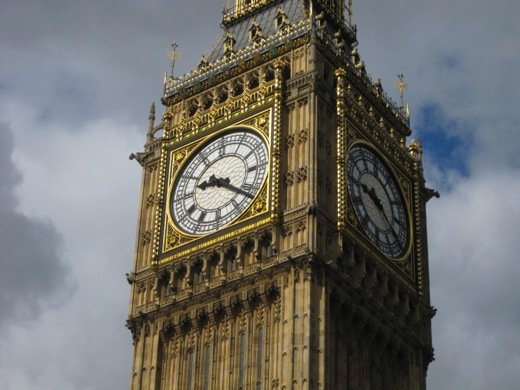
Christians in the British Isles in the 1640s faced difficult days. The church was splintered, the land was divided, and Civil War was ripping the kingdom apart. The king had been beheaded on a cold January day, wearing two shirts so he wouldn’t shiver and give the appearance of fear. Parliament was running the English government; and Ireland and Scotland were in play.
In the middle of the bloodshed and confusion, the British Parliament appointed an assembly– mostly Puritans – to figure out ways to unify the church and heal the nation. This group of people became known as the Westminster Assembly and met over a thousand times. Among the documents they produced was a little booklet called the Westminster Shorter Catechism, with its 107 simple questions and answers.
The very first question and answer provide us with perhaps the best statement every devised in Christian philosophy about the purpose and aim of our lives.
The fourth question is considered one of the best definitions of God ever formulated by human pen.
The last ten questions – nearly ten percent of the entire document – are devoted to the Lord’s Prayer. Question #98 asks: “What is prayer?” The answer is a classic — perhaps history’s best definition of prayer: “Prayer is an offering up of our desires to God, for things agreeable to His will, in the name of Christ, with confession of our sins, and thankful acknowledgment of His mercies.”
The next question – Number #100 – asks: “What rule hath God given for our direction in prayer? The answer: “The whole Word of God is of use to direct us in prayer; but the special rule of direction is that form of prayer which Christ taught His disciples, commonly called the Lord’s Prayer.”
The remaining questions explain the Lord’s Prayer phrase by phrase. For example:
“The preface of the Lord’s Prayer,” says the catechism, “which is, Our Father which art in heaven, teacheth us to draw near to God with all holy reverence and confidence, as children to a father able and ready to help us; and that we should pray with and for others.”
Then the catechism asks: “What do we pray for in the first petition?” The answer is: “In the first petition, which is, Hallowed be Thy name, we pray that God would enable us and others to glorify Him in all that we whereby He maketh Himself known; and that He would dispose all things to His own glory.”
I’d like to encourage you to revisit the Westminster Shorter Catechism. It’s one of Christianity’s most helpful documents (even if you aren’t Presbyterian), and it’s simple analysis of the Lord’s Prayer is of greater value than a whole series of sermons like mine. No one who studies the Lord’s Prayer should skip the final ten Q&As in the Shorter Catechism. It’s still worth teaching to our children–and to ourselves.